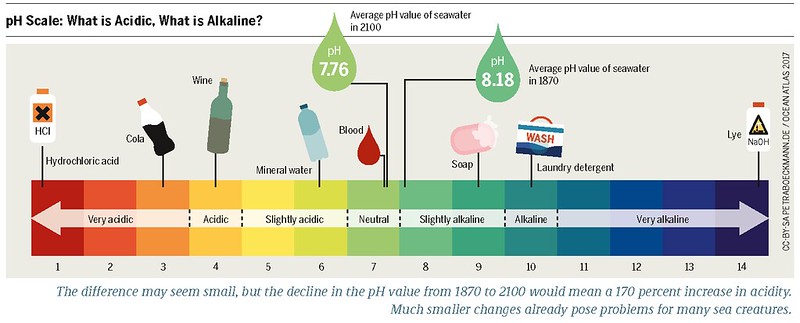The pH value of water is affected by temperature, with the pH decreasing as the temperature increases. This is due to the formation of hydrogen ions (hydroxonium ions) and hydroxide ions from water, which is an endothermic process. At 100°C, the pH of pure water is 6.14, which is considered neutral at this higher temperature.
Understanding the pH Scale
The pH scale measures the concentration of hydrogen ions in a solution, with a pH of 7 being neutral. A pH less than 7 is acidic, and a pH greater than 7 is basic. Each whole pH value below 7 is ten times more acidic than the next higher value, and the same holds true for pH values above 7, each of which is ten times more basic than the next lower whole value.
The Effect of Temperature on pH
As the temperature of water increases, the pH decreases. This is due to the endothermic process of the formation of hydrogen ions and hydroxide ions from water. At higher temperatures, the equilibrium shifts to favor the forward reaction, resulting in more hydrogen ions and hydroxide ions.
| Temperature | pH of Pure Water |
|---|---|
| 0°C | 7.47 |
| 25°C | 7.00 |
| 100°C | 6.14 |
Balancing the pH of Water
To balance the pH of water, it is recommended to use a pH adjuster or a buffer solution. A pH adjuster is a chemical that can be added to water to raise or lower the pH, while a buffer solution is a solution that resists changes in pH when small amounts of an acid or a base are added.
Contaminants and pH
Certain contaminants, such as heavy metals, are more soluble in acidic water, while others, such as certain pesticides, are more soluble in basic water. By maintaining the proper pH of the water, these contaminants can be kept in check.
Home Remedies for pH Balancing
At home, there are several remedies that can be used to balance the pH of water. For example, adding baking soda (sodium bicarbonate) to water can raise the pH, while adding vinegar (acetic acid) to water can lower the pH. It is important to use these remedies in moderation to avoid an unbalanced pH.
Considerations for Hot Water
Hot water can have a higher pH than cold water due to the formation of hydrogen ions and hydroxide ions from water. To combat this, it is recommended to let hot water cool before using it, or to add cold water to hot water to lower the temperature and balance the pH.
References:
– https://atlas-scientific.com/blog/does-temperature-affect-ph/
– https://chem.libretexts.org/Bookshelves/Physical_and_Theoretical_Chemistry_Textbook_Maps/Supplemental_Modules_(Physical_and_Theoretical_Chemistry)/Acids_and_Bases/Acids_and_Bases_in_Aqueous_Solutions/The_pH_Scale/Temperature_Dependence_of_the_pH_of_pure_Water
– https://www.epa.gov/goldkingmine/what-ph
– https://newalbanysmiles.com/ph-values-of-common-beverages/
– https://extension.okstate.edu/fact-sheets/the-importance-of-food-ph-in-commercial-canning-operations.html
– https://www.phionics.com/2021/09/07/how-temperature-affects-ph-measurements/

